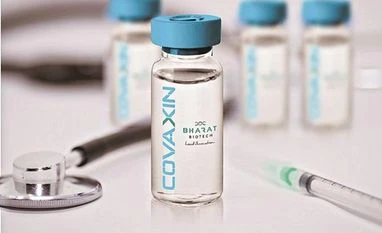“If a causal link is established, then the liability is of the manufacturer. The approval for the vaccines is according to the provisions of the New Drugs and Clinical Trials Rules, 2019, which comes under the Drugs and Cosmetics Act of 1940. In this act, there is a provision of compensation to the subject in case there is any serious adverse event in a trial subject which is linked to the investigational product," said a source close to the development.
Covaxin, the vaccine candidate from Bharat Biotech has been approved in 'clinical trial mode'. This means that the New Drugs and Clinical Trials Rules apply to the vaccine. During a recent press briefing, Krishna Ella, chairman and managing director of Bharat Biotech, had said the firm would take full responsibility of trial participants.
Balram Bhargava, director-general of the Indian Council of Medical Research (ICMR), has also said that restricted use of Covaxin in clinical trial mode meant that beneficiaries will have to give consent and there will be regular follow up. Such persons will not receive the placebo.
As for Serum Institute of India's Covishield approval, the drug regulator has mentioned in conditions to be met that the firm has to submit an India-specific risk management plan, and also submit safety data on adverse events with due analysis every 15-days for the first two months. Thereafter, the monthly submission of data on adverse events is allowed.
A source, thus, clarified that serious adverse events will be closely monitored as none of the vaccines has a full marketing authorisation. "First, the vaccine maker has to submit data with due analysis, and then the CDSCO expert group investigates and analyses the data to see if there is any causal link," the person said.
Meanwhile, state governments, too, have been asked by the Centre to oversee the vaccination drive and report the outcome to the health ministry. Gujarat's state immunisation officer Dr. Nayan Jani said they have been asked to monitor the vaccine recipients for 28-days before administering the second booster dose. "Hence, all reports will be sent to the ministry," he said.
The India situation is different from countries like the US where the Public Readiness and Emergency Preparedness Act was invoked to give legal protection to companies making or distributing the vaccines unless there is 'willful misconduct' by the company. Therefore, vaccine makers will not have to engage in legal battles for compensation unless 'willful misconduct' is proven.
"India is unlikely to indemnify the vaccine makers. It will monitor the adverse events and according to the New Rules of 2019, the vaccine maker has to submit periodic data. Only if a causal link is established for any adverse event, the vaccine maker may be held responsible," said a senior medico-legal expert. He also said that by making the act of vaccination 'voluntary' the government has also ensured that there is what we call 'implied consent' of the person who is taking the vaccine.
Vaccine makers will have to also distribute literature along with their vaccines educating everyone about known side effects.
To read the full story, Subscribe Now at just Rs 249 a month
Already a subscriber? Log in
Subscribe To BS Premium
₹249
Renews automatically
₹1699₹1999
Opt for auto renewal and save Rs. 300 Renews automatically
₹1999
What you get on BS Premium?
-
Unlock 30+ premium stories daily hand-picked by our editors, across devices on browser and app.
-
Pick your 5 favourite companies, get a daily email with all news updates on them.
Full access to our intuitive epaper - clip, save, share articles from any device; newspaper archives from 2006.
Preferential invites to Business Standard events.
Curated newsletters on markets, personal finance, policy & politics, start-ups, technology, and more.
Need More Information - write to us at assist@bsmail.in
)